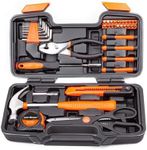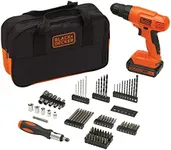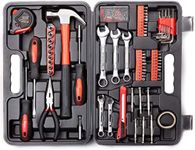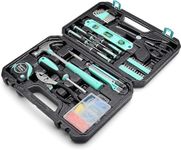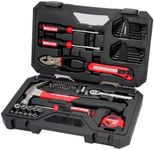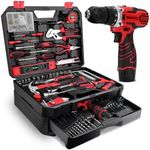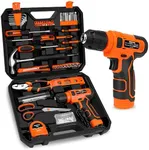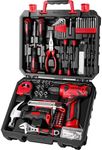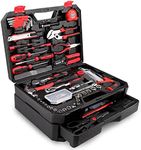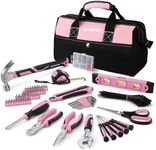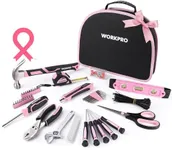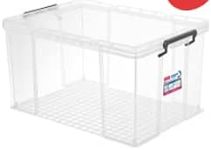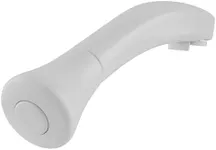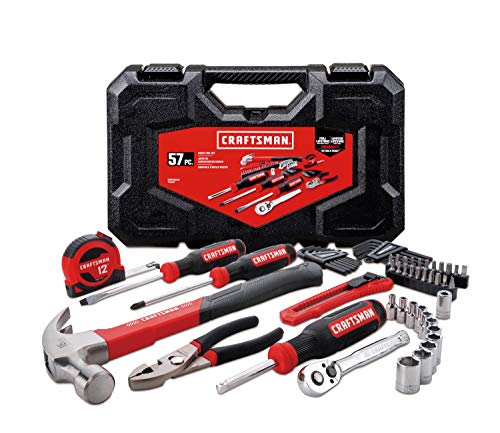Buying Guide for the Best Home Tool Kit
Choosing the right home tool kit can make a big difference in how efficiently and effectively you can handle various tasks around your home. Whether you're a DIY enthusiast or just need to fix the occasional leaky faucet, having the right tools on hand is essential. When selecting a home tool kit, consider the types of projects you plan to tackle, the quality of the tools, and the variety of tools included. Here are some key specifications to help you make an informed decision.Tool VarietyTool variety refers to the range of different tools included in the kit. This is important because a wider variety of tools allows you to handle a broader range of tasks. Basic kits might include essentials like a hammer, screwdrivers, and pliers, while more comprehensive kits could have wrenches, a tape measure, a utility knife, and more. If you only need tools for simple repairs, a basic kit will suffice. However, if you plan on tackling more complex projects, opt for a kit with a greater variety of tools.
Tool QualityTool quality is about the durability and performance of the tools. High-quality tools are made from robust materials and are designed to last longer and perform better. This is important because better quality tools will not only make your work easier but also save you money in the long run as they won't need to be replaced as often. Look for tools made from materials like chrome vanadium steel and those with ergonomic handles for comfort. If you plan to use the tools frequently, investing in higher quality is advisable.
Storage CaseThe storage case is the container that holds all the tools in the kit. This is important for keeping your tools organized and easily accessible. A good storage case will have designated spots for each tool, making it easy to find what you need quickly. Cases can range from simple plastic boxes to more durable, heavy-duty cases with secure latches. If you need to transport your tools often, look for a sturdy case with a handle. For home use, a well-organized case that fits in your storage space is ideal.
Number of PiecesThe number of pieces in a tool kit refers to the total count of individual tools and accessories included. This is important because a higher number of pieces generally means more versatility and the ability to handle a wider range of tasks. Kits can range from small sets with just a few pieces to large sets with over a hundred pieces. If you only need tools for occasional use, a smaller kit will be sufficient. For more extensive DIY projects, a larger kit with more pieces will be more useful.
Specialty ToolsSpecialty tools are those designed for specific tasks or trades, such as electrical work, plumbing, or carpentry. This is important if you have particular projects in mind that require specialized tools. Some kits include these specialty tools, while others focus on general-purpose tools. If you have specific needs, look for a kit that includes the specialty tools relevant to your projects. For general home maintenance, a kit with a good selection of basic tools will usually be enough.
